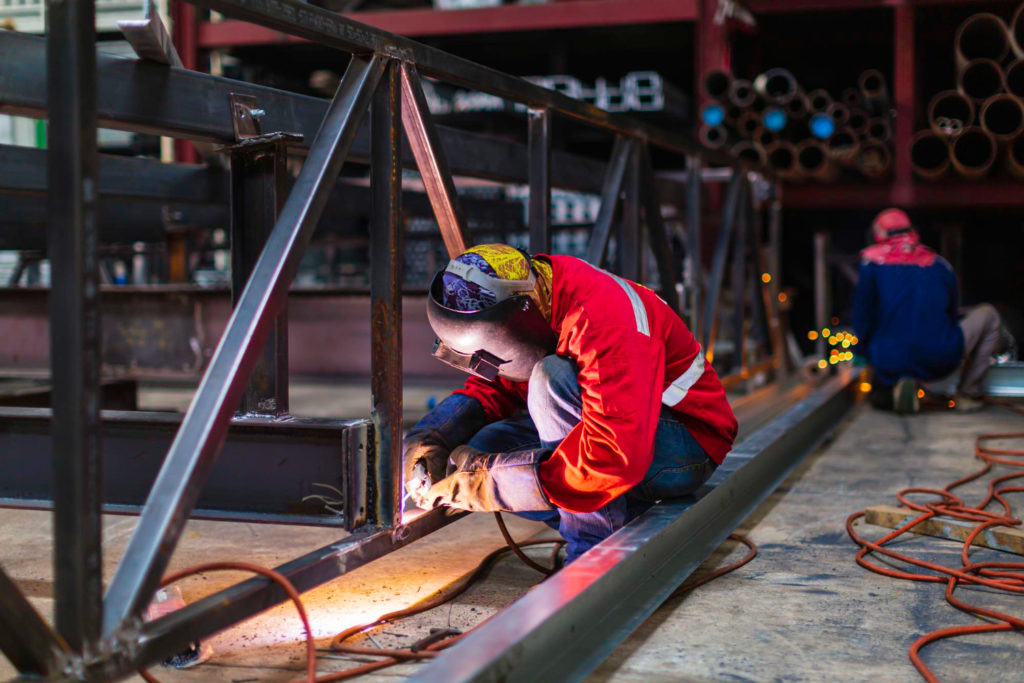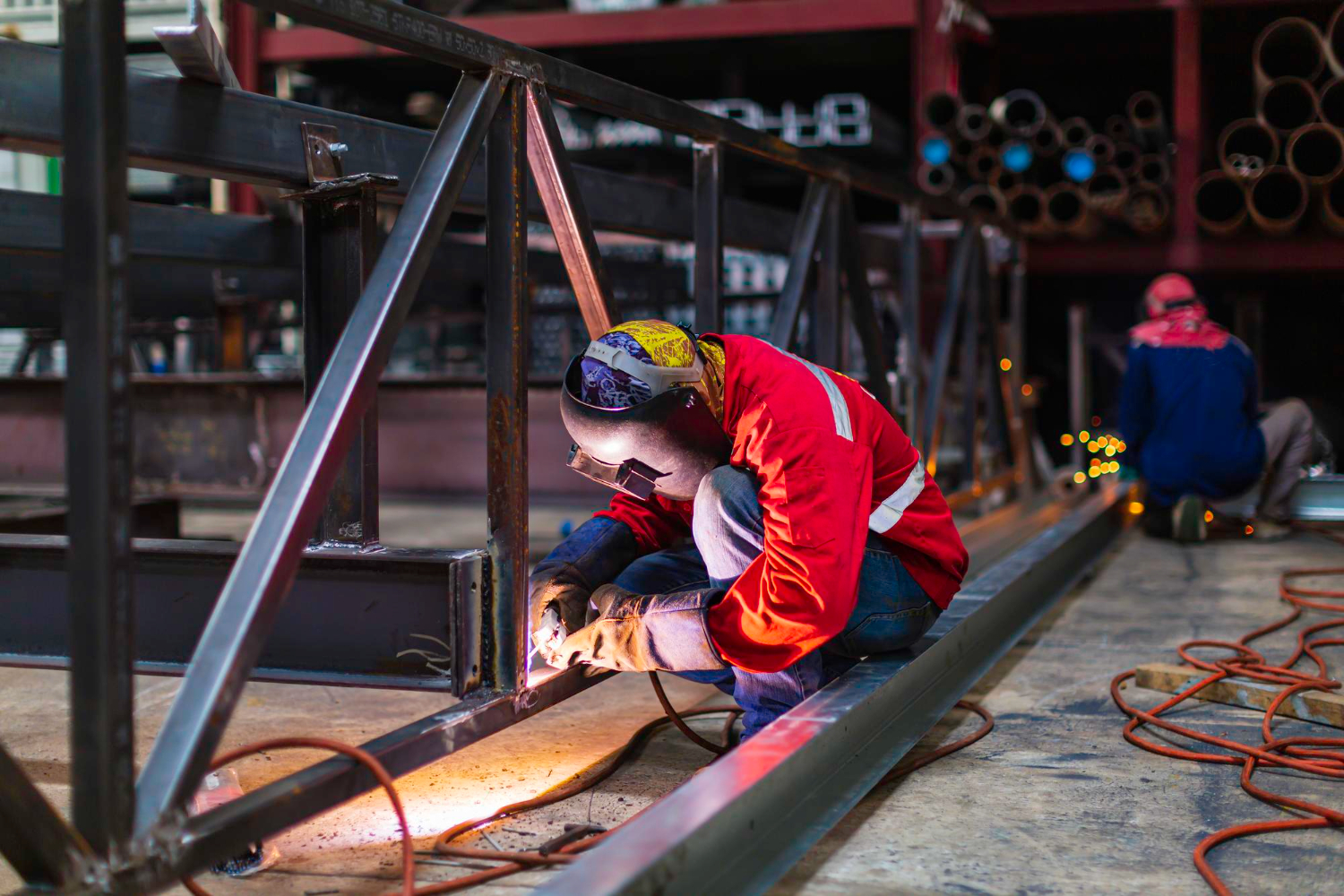Structural steel is an integral part of the modern construction industry, from towering skyscrapers to industrial warehouses. It is a versatile, durable, and cost-effective building material that has been used for centuries to create some of the most iconic structures in the world.
Beyond its well-known properties, structural steel has several hidden qualities that make it a popular choice in various industries.
- We will dive deep into the world of structural steel fabrication and uncover the untold story of this remarkable material.
- We will explore its fabrication methods, applications in different industries, and the many benefits that make it an ideal choice for construction needs.
- Join us as we unlock the mysteries of structural steel and discover why it is a critical component of modern construction.
Understanding What Steel Fabrication Means
- Steel fabrication involves:
- Turning raw steel into finished products.
- Usually cutting.
- Welding.
- Shaping steel to specific dimensions and designs.
The typical fabrication methods are forging, machining, stamping, casting and steel extrusion. Each method has its advantages and applications, making it suitable for different steel products.

Saying Hello To Structural Steel Fabrication Process
- The structural steel fabrication process implies a specialized form of steel fabrication that involves manufacturing steel components for building structures, such as columns, beams, and trusses.
- The process begins with the structure’s design, which then breaks down into individual components.
- These components undergo cutting, shaping, and welding to create the finished product.
- The fabrication process involves a series of steps, starting with the initial design, then cutting and shaping the steel to the required specifications.
- Once the steel is cut and shaped, it’s welded together to form the final product.
- Finally, the product undergoes inspection to ensure it meets the required quality standards.
The Unignorable Fabrication Support From Bigfoot
At every step of the fabrication process, Bigfoot Pipe & Piling provides top-notch support to ensure that the final product meets the highest quality and performance standards.
With years of experience in steel fabrication, we offer a range of services, including:
- BEVELING: Beveling involves the removal of material at the edges of steel components to create a slope or angle, facilitating welding.
- SPLITTING: Splitting steel is about creating a straight cut along a specific length, making it easier to work with.
- CUTTING TO LENGTH: Cutting steel to specific lengths is a critical step in the fabrication process, ensuring that each component is of the right size and shape.
- WELDING: Welding joins steel components using heat and pressure, creating a solid bond.
- THREADING: Threading involves cutting threads into steel components, making it possible to screw them together.
- CLEANING: Cleaning is essential in the fabrication process, ensuring the steel is free from contaminants that could compromise its quality.
- PAINTING: Painting steel components provides a protective layer that prevents corrosion and enhances their appearance.
- LINING: Lining the parts with a protective coating, such as epoxy or polyurethane, enhances their durability and lifespan.
- COATING: Coating steel components with a layer of zinc or other material enhances their corrosion resistance.
- WRAPPING: Wrapping with a layer of plastic or other material protects these steel components during transport and storage.
- TESTING: Testing is essential in the fabrication process, ensuring that the finished product meets the required quality standards.
- STRAIGHTENING: Straightening involves correcting any deviations from the required dimensions or specifications.
- SANDBLASTING: Sandblasting involves using compressed air to blast sand or other abrasive materials onto the steel surface, creating a smooth finish.
- GALVANIZING: Galvanizing implies coating steel components with a layer of zinc, enhancing their corrosion resistance and durability.
Industries That Require Structural Steel Support
Structural steel fabrication is a critical component of various industries that require strong and durable structures. These industries include but are not limited to:
- Construction Industry: The construction sector heavily relies on structural steel fabrication for building skyscrapers, bridges, stadiums, and other large structures.
- Manufacturing Industry: The manufacturing industry uses structural steel to create factories and other facilities requiring large open spaces.
- Energy Industry: This industry uses structural steel to construct power plants, oil refineries, and other facilities.
- Automotive Industry: Structural steel helps construct automotive assembly plants, warehouses, and other facilities in the automotive industry.
- Aerospace Industry: The aerospace industry requires solid and lightweight structures, and structural steel fabrication provides the necessary strength.
- Agriculture Industry: Structural steel helps to construct agricultural buildings, such as barns, sheds, and grain storage facilities.
Note: These industries rely on the strength and durability of structural steel to ensure that their structures are safe, long-lasting, and meet the required standards.
6 Untold Qualities Of Structural Steel For Construction Needs
Structural steel is a popular building material due to its versatility, strength, and durability. However, several untold qualities of structural steel make it an ideal choice for construction needs:
- Sustainability: Structural steel is 100% recyclable, making it eco-friendly for construction needs. It can be melted down and reused without losing its strength or durability.
- Design Flexibility: It can be shaped and molded into various designs, providing the flexibility to create complex structures and designs.
- Cost-Effective: Structural steel is cost-effective when compared to other building materials. Its durability and longevity make it a wise investment in the long run.
- Fire Resistance: It is highly resistant to fire, making it a safer choice for construction needs.
- Resistance to Natural Disasters: Structural steel can stand firm against natural disasters such as earthquakes, hurricanes, and tornadoes, making it an ideal choice for buildings in disaster-prone areas.
- Reduced Construction Time: It is easy to assemble and requires less time for construction, resulting in faster project completion times.
These untold qualities of structural steel make it a popular and reliable choice for construction needs.
Its versatility, strength, and durability ensure that it will continue to be a critical component in the construction industry for years.
Take A Step With Bigfoot And Make Your Project A Hit!
Don’t let your construction dreams fall flat,
Take a step with Bigfoot Pipe & Piling and watch it all come to bat.
With steel fabrication services that can’t be beat,
Your project will be complete and oh so sweet!
Contact us today and let’s start this feat!

